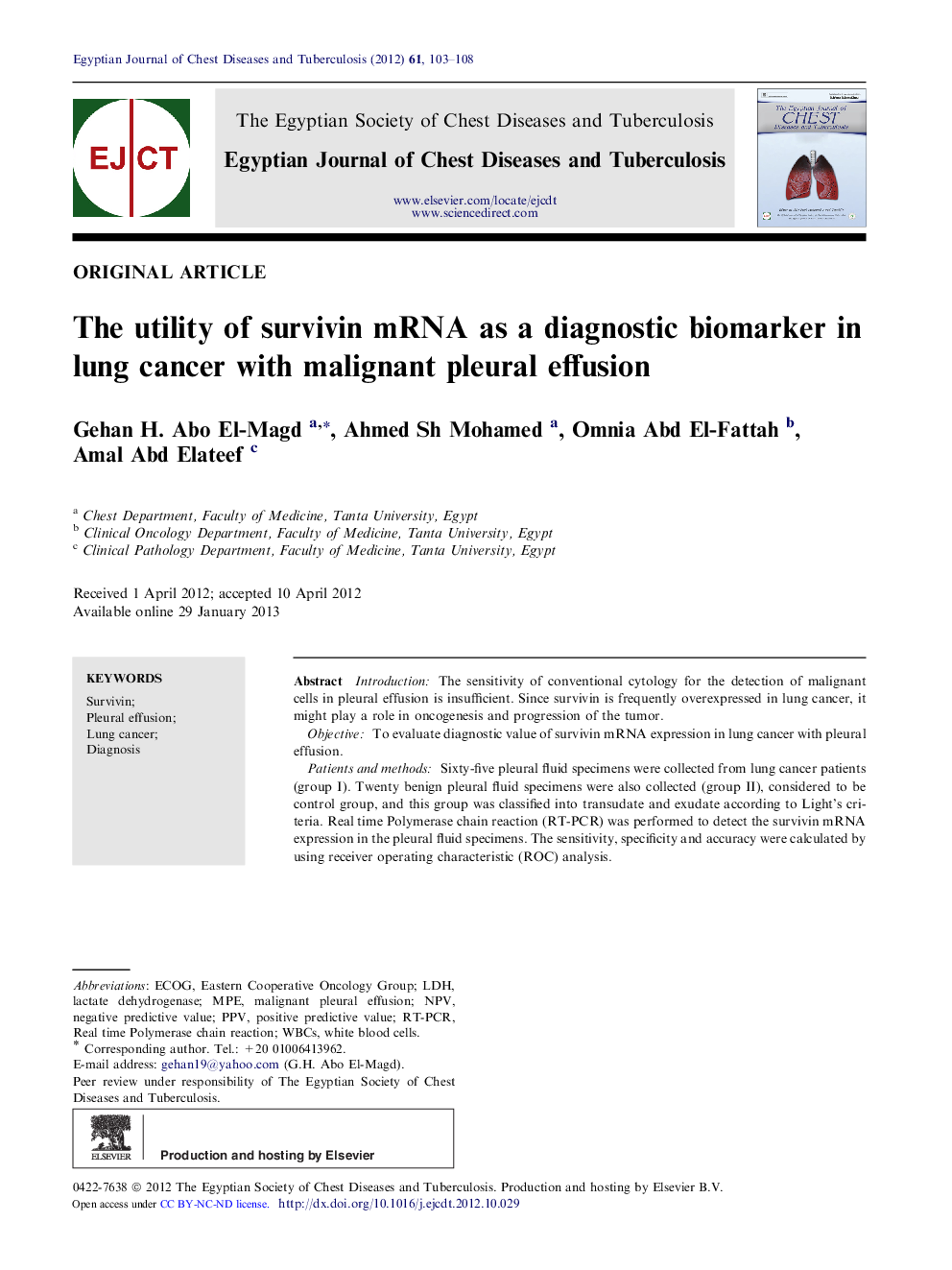| Article ID | Journal | Published Year | Pages | File Type |
|---|---|---|---|---|
| 3400388 | Egyptian Journal of Chest Diseases and Tuberculosis | 2012 | 6 Pages |
IntroductionThe sensitivity of conventional cytology for the detection of malignant cells in pleural effusion is insufficient. Since survivin is frequently overexpressed in lung cancer, it might play a role in oncogenesis and progression of the tumor.ObjectiveTo evaluate diagnostic value of survivin mRNA expression in lung cancer with pleural effusion.Patients and methodsSixty-five pleural fluid specimens were collected from lung cancer patients (group I). Twenty benign pleural fluid specimens were also collected (group II), considered to be control group, and this group was classified into transudate and exudate according to Light’s criteria. Real time Polymerase chain reaction (RT-PCR) was performed to detect the survivin mRNA expression in the pleural fluid specimens. The sensitivity, specificity and accuracy were calculated by using receiver operating characteristic (ROC) analysis.ResultsSixty-five pleural fluid specimens from lung cancer patients were tested by RT-PCR, only 30/65 (46%) had positive cytology. The positive rate of survivin mRNA expression in maligant pleural effusion (63/65; 95.38%) was much higher than that in the pleural effusion with benign disease (4/20; 20%, P < 0.01). Twenty-seven cancer patients were negative for cytology and 24/27 were positive for survivin mRNA expression. The sensitivity, specificity and accuracy of survivin were 89.5%, 50%, 73.1% for diagnosing malignant pleural effusion.ConclusionsThe detection of survivin by RT-PCR seems to be a promising assay to diagnose malignant pleural effusions, using the appropriate cut-off point, survivin mRNA has a significant role in differentiating benign from malignant pleural effusion.
